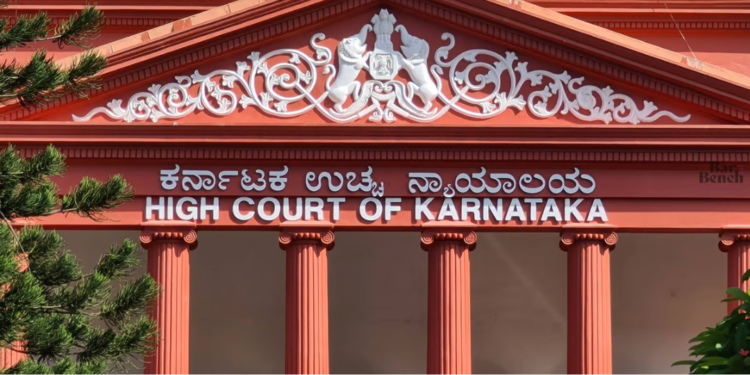The Karnataka High Court recently revised its earlier order stating that merely watching child pornography online does not constitute an offence [Inayatullah N. v. State of Karnataka].
On July 10, Justice M. Nagaprasanna had dismissed the criminal proceedings against Inayathulla N., who was charged with watching child pornography.
However, on July 19, the judge revisited the decision, acknowledging that he had overlooked provisions of Section 67B of the Information Technology (IT) Act.
“This court had passed the order without noticing Section 67B (b). It is an error,” the judge stated while issuing the new order in open court.
The Court emphasized that judges are human and can make mistakes.
“We judges are also humans. Infallibility is not unique to humanity. Since judges are human, we are also not infallible. Therefore, to perpetuate this error after realizing there is a mistake in the order is no heroism,” the Court noted.
In its original order of July 10, the Court had stated that merely watching child pornography did not equate to publishing or transmitting such material, which are the acts deemed offences under the IT Act.
“The allegation against the petitioner is that he has watched a pornographic website. This, in the considered view of the Court, does not amount to publishing or transmitting material as required under Section 67B of the IT Act. At most, the petitioner could be a porn addict who has watched pornographic material. Nothing beyond this is alleged against the petitioner. If the facts are compared to the requirements of Section 67B of the IT Act, it becomes clear that further proceedings would be an abuse of the law,” the Court had said.
Subsequently, the Karnataka government filed a recall application, highlighting that the Court had based its decision only on sub-section (a) of Section 67B, which addresses the transmission and publication of material depicting children in sexually explicit conduct.
However, sub-section (b) of Section 67B also criminalizes creating, collecting, seeking, browsing, and downloading material that depicts children in obscene, indecent, or sexually explicit manners.
The Court conceded that it had initially overlooked sub-section (b).
“Sub-clause (b) of Section 67B is applicable to this case. Since the proceedings were annulled without allowing further investigations and without considering Section 67B (b), it necessitates the recall of the order quashing the proceedings,” Justice Nagaprasanna said.
The Court also dismissed the petitioner’s counsel’s argument that an order once passed cannot be recalled or reviewed.
“The argument is unacceptable as Section 482 of the CrPC cannot be restricted by Section 362 of the CrPC. Inherent powers are not controlled by other provisions,” the High Court stated.
As a result, the Court permitted further investigation in the case and recalled its previous order.
Advocate S. Jagan Babu represented the petitioner Inayathulla.
Advocate Harish Ganapathi appeared for the Karnataka police.

















